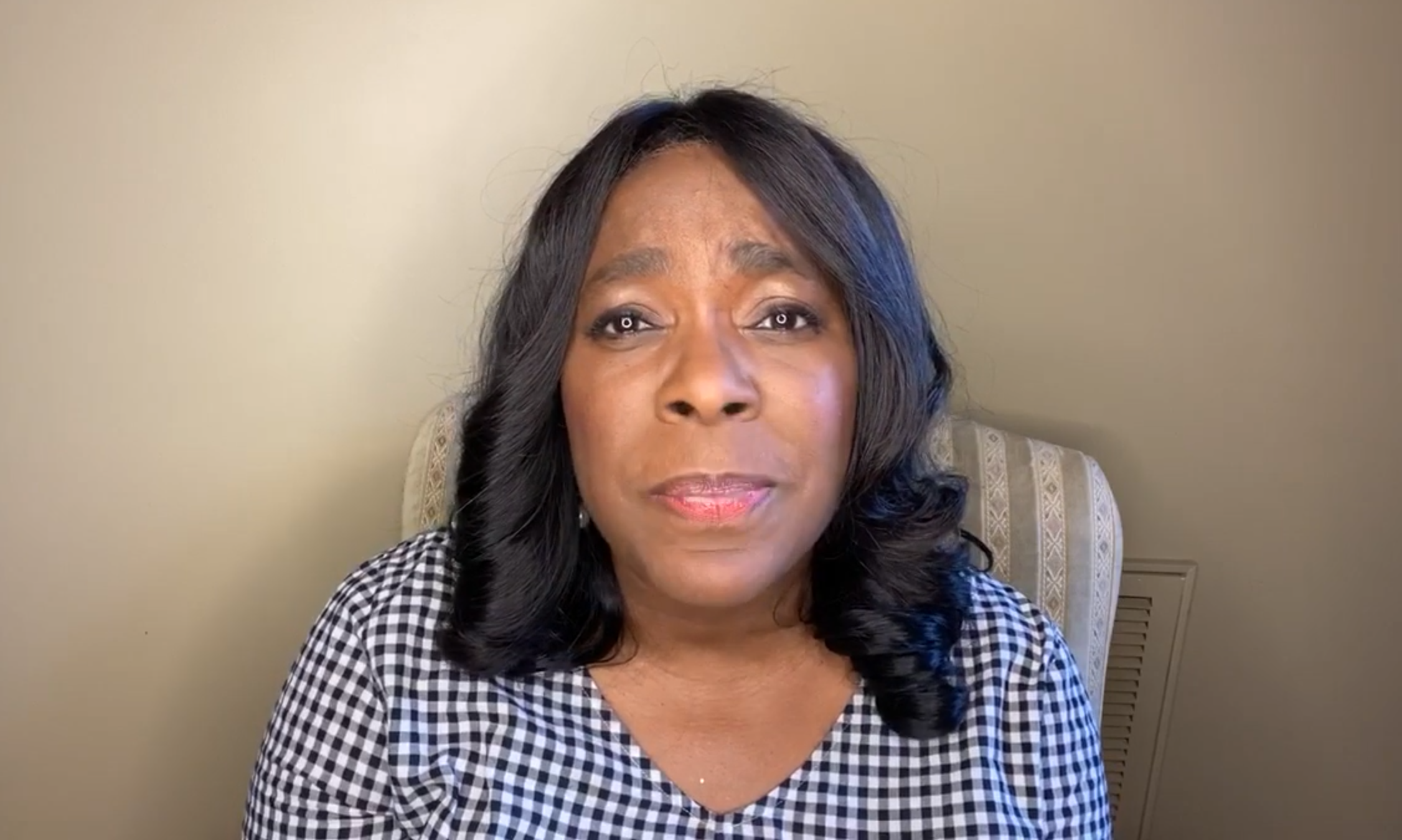A bipartisan supermajority of the U.S. House of Representatives voted to override President Donald Trump’s veto of the William M. “Mac” Thornberry National Defense Authorization Act with Congresswoman Terri Sewell, D-Alabama, joining in favor of the veto override.
The bipartisan, bicameral NDAA bill has been passed 59 years in a row. Sewell said that the NDAA complies with the bipartisan budget agreement and authorizes $732 billion in discretionary spending for our national defense.
Trump’s veto of the bipartisan NDAA, which also sets national defense priorities for the fiscal year, was somewhat unexpected, though Trump had signaled he didn’t support the bill. The House voted to override Trump’s veto 322 to 87, with 109 Republicans voting to override his veto.
“It is unconscionable that President Trump would oppose a bipartisan, bicameral bill that provides critical funding necessary to support our troops during this unprecedented time in our nation’s history,” Sewell said. “Today I voted with my colleagues on both sides of the aisle to override the President’s reckless veto and protect the lives and livelihoods of our brave military men and women, especially those in Alabama. Senate Democrats and Republicans must work together to override his veto and ensure Americans remain safe at home and abroad.”
Sewell was selected by Speaker of the House Nancy Pelosi, D-California, in November, for the second time in a row, to serve on the conference committee tasked with working out the differences between the House and Senate versions of the NDAA.
Sewell said that she worked diligently with her fellow conferees to secure key wins in the bill that include:
- Altering or Removing All Names and Symbols Honoring the Confederacy or Those Who Served Voluntarily With the Confederacy From All DOD Assets: The conference report establishes an independent commission to make binding recommendations to the Secretary of Defense for the modification or removal of all names, symbols, displays, monuments, and paraphernalia that honor or commemorate the Confederacy or any person who served voluntarily with the Confederacy from all assets of the Department of Defense.
- Providing A Pay Raise to the Troops: The conference report authorizes a 3.0 percent increase in basic pay for service members.
- Authorizing Hazardous Duty Pay for Service Members in Harm’s Way: The conference report authorizes the Secretary of Defense to standardize payment of hazardous duty pay for the uniformed services, including the members of the Guard and National Reserve. It also increases Hazardous Duty Pay from $250 to $275 per month.
- No Backfill of the Military Construction Funds Taken for President’s Border Wall: The conference report does not authorize any backfill of military construction funds taken for the President’s border wall.
- Requiring Improvements in Military Housing: The conference report takes several steps to improve military housing, including updating minimum health and safety standards for all military base housing, repealing a provision that currently allows DOD to place families in substandard housing units, and requiring DOD to implement Comptroller General recommendations for improvement of military family housing.
The bill also includes several provisions authored by Sewell, and those important to the 7th Congressional District:
- The bill authorizes $8.73 billion for 93 F-35 Joint Strike Fighters, for modernization of the Air Force, Navy and Marine Corps fighter fleets. Montgomery’s 115th 187th Fighter Wings are scheduled to receive the F-35A in 2023.
- The bill establishes a Chief Diversity Officer of the DOD and a Senior Advisor for Diversity and Inclusions for each Military Service, including the Coast Guard.
- Requires the DOD Inspector General to establish a mechanism to track and report supremacist, extremist, and criminal gang activity in the Armed Forces.
- Requires questions regarding racism, anti-Semitism, and supremacism be incorporated into DOD surveys; and requires a briefing on which surveys they will be included in.
- Includes the Elijah Cummings Federal Employee Anti-Discrimination Act, passed by the House in January 2019, which strengthens equal employment opportunity protections for federal employees and strengthens prohibitions against discrimination and retaliation against whistleblowers.
- Authorizes $20 million for Historically Black Colleges and Universities and Minority Institutions.
- Requires the Secretary of Defense to partner with minority institutions of higher education to diversify the participants in the DOD’s Science, Mathematics, and Research for Transformation (SMART) Defense Education Program.
- Establishes a mentoring and career counseling program at DOD with the goal of having the diversity of the population of officers serving in each branch reflect the diversity of the population of each armed force as a whole.
- Includes disaster-related emergency preparedness activities among law enforcement activities eligible to participate in the program; provides preference for disaster-related emergency preparedness-type equipment requests, and the highest preference for high-water vehicle requests.
- Prohibits the transfer of bayonets, grenades (other than stun and flash-ban), weaponized tracked vehicles, and weaponized drones to law enforcement agencies.
- Requires that law enforcement agencies receiving military surplus equipment attend annual training by participating law enforcement agencies in de-escalation of force, and respect for the rights of citizens under the Constitution of the United States.
- Requires a report on the implementation of provisions from the FY2020 National Defense Authorization Act related to installation master planning, updates to the Unified Facilities Criteria (building codes), sea-level rise modeling, and climate assessment tools.
- Establishes an alternative fuel vehicle pilot program that will require the military department to expand their use of alternative fuel non-tactical vehicles to increase the use of hybrid and EV vehicles.
- Requires DOD to invest in research and development of advanced water harvesting technologies that would aid in addressing water security issues in areas impacted by drought due to climate change.
- Requires the military services to assess their water use at installations in regions experiencing water scarcity, maximize use of landscaping practices that reduce water usage, and improve their water conservation.
- Requires DOD to submit a report on its greenhouse gas emissions for the last 10 years within 180 days of enactment.
- Expresses the Sense of Congress strongly reaffirming the U.S. commitment to the NATO alliance and urging further cooperation with NATO on shared challenges such as the COVID-19 pandemic.
- Enhances authorities for the DOD to engage with our closest allies and partners, including those in the National Technology and Industrial Base (United States, United Kingdom, Canada and Australia) to ensure secure sources of materials critical to U.S. national security.
- The NDAA includes provisions on Europe and Russia preventing the administration from reducing the number of U.S. forces stationed in Germany below 34,500 until 120 days after the Secretary of Defense submits an assessment and planning regarding the implications for allies, costs, military families, deterrence, and other key issues. It also expresses the sense of Congress emphasizing the value of U.S. forces in Germany and the U.S.-German alliance.
- Fully funds the European Deterrence Initiative (EDI), and invests in additional capabilities that support deterrence in the European Command area of operations.
- Provides $250 million for the Ukraine Security Assistance Initiative (USAI), which provides support and assistance to the Ukrainian Armed Forces.
- Establishes yearly reporting on any “bounties” or other attempts by the Russian Federation, its agents, or proxies to encourage or support attacks against U.S. troops or personnel in named operations or combat.
- Increases accountability of funds expended for DOD clandestine activities to support operational preparation of the environment.
- Requires a report on foreign malign influence campaigns on social media platforms targeting elections for federal office.
The fiscal year 2021 National Defense Authorization Act passed both chambers of Congress before Christmas with more than the two-thirds majority needed to override a presidential veto. The effort to override the president’s veto now goes to the Senate where the rules allow GOP Senators in opposition to the veto override to slow the process.
Trump’s primary objections to the NDAA is that it orders the military to rename military bases that were named for Confederate heroes and that it does not repeal Section 230, which protects social media companies like Facebook and Twitter from being held responsible for their content.
If the Senate votes to override Trump’s veto of the NDAA, it would be the first successful veto override in the Trump presidency.
Sewell is a senior member of the House Permanent Select Committee on Intelligence and chair of the Subcommittee on Defense Intelligence and Warfighter Support.




















































